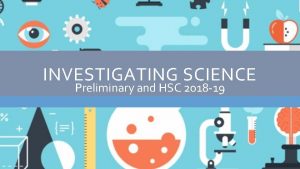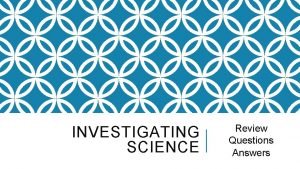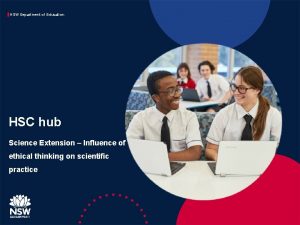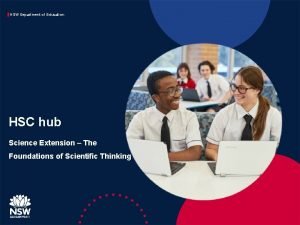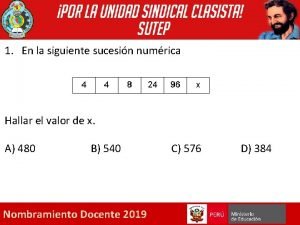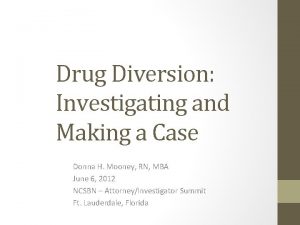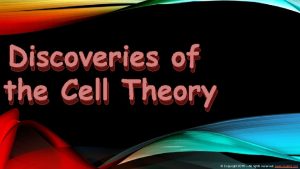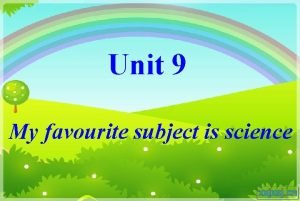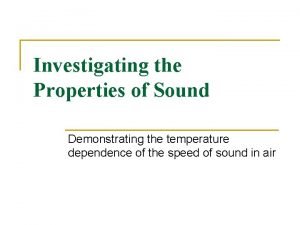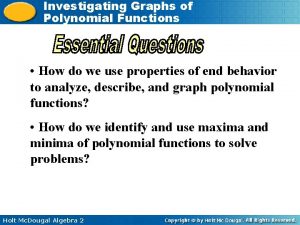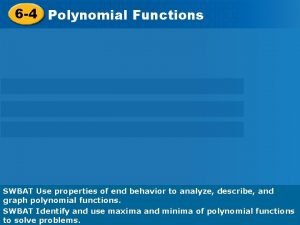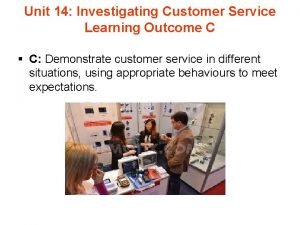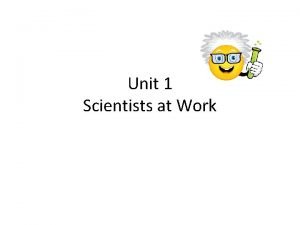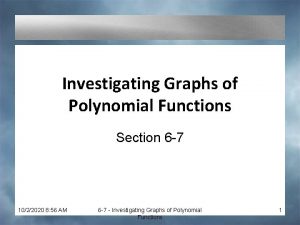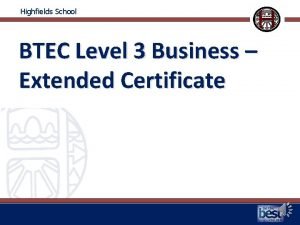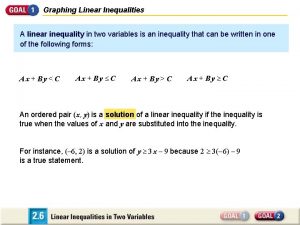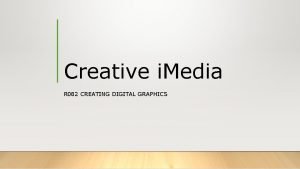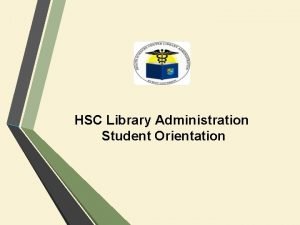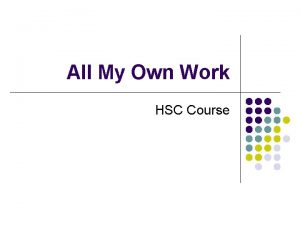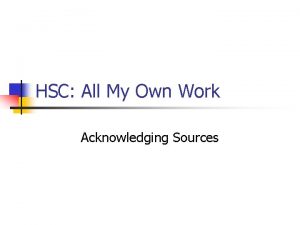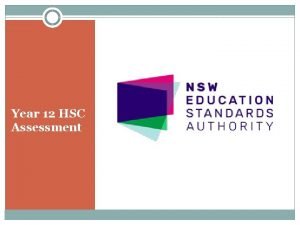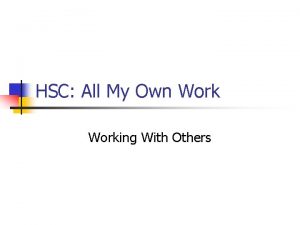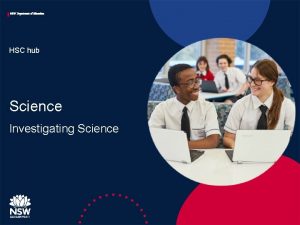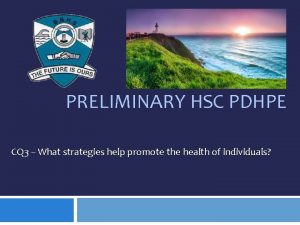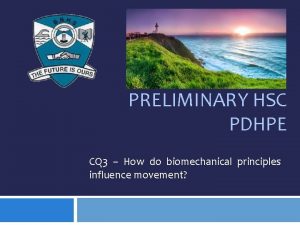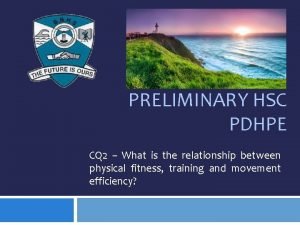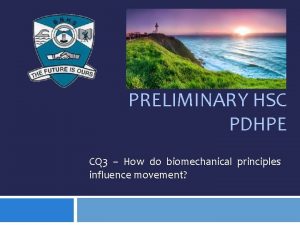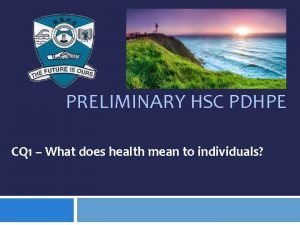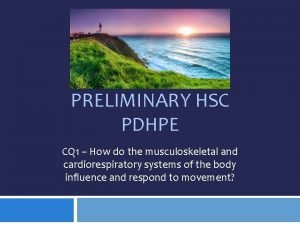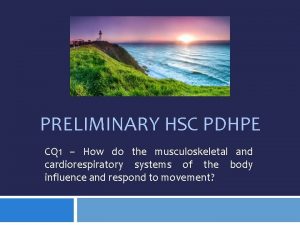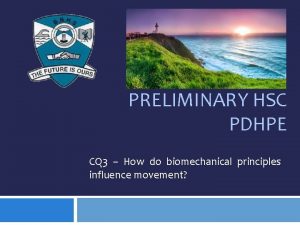INVESTIGATING SCIENCE Preliminary and HSC 2018 19 WHAT

















- Slides: 17

INVESTIGATING SCIENCE Preliminary and HSC 2018 -19

WHAT IS INVESTIGATING SCIENCE? Investigating Science is a new course with a focus on the application of science skills, such as questioning, observing, predicting, experimenting, and evaluating ideas and investigations. There is also a strong emphasis on researching and using second hand information to deepen your understanding of scientific concepts.

WHO CAN STUDY IT? The Investigating Science Stage 6 Syllabus is designed to assist students of all abilities engage with scientific processes, and apply those processes to investigate relevant personal, community and global scientific issues. If you have a passion for all types of Science then this is the course for you!

HOW IS THE COURSE STRUCTURED? Inquiry questions provide a focus for teaching, research, practicals and learning. Content is organised in modules.

COURSE MODULES FOR YEAR 11 AND 12 1. Observing 2. Inferences and Generalisations 3. Scientific Models 4. Theories and Laws 5. Scientific Investigations 6. Technologies 7. Fact or Fallacy 8. Science and Society

CAN IT BE STUDIED WITH OTHER HSC SCIENCES? The short answer is YES! It is designed to complement other Science subjects as it focuses on the skills such as research, experimentation and communication of Science. It gives students an opportunity to deepen an area of knowledge from any scientific area.

WHAT WILL YOU BE DOING? • Build on the knowledge, understanding and skills of Stage 5 Science • Apply Working Scientifically skills in an integrated way • Design and conduct practical investigations • Participate in fieldwork in Year 11 and Year 12

WHAT WILL YOU BE LEARNING ABOUT? • The observations of Archimedes, Alexander Fleming and Galileo – the practices of Aboriginal and Torres Strait Islander Peoples in relation to their application of scientific principles • The use of models in Science • The distinction between scientific theories and laws • Using Science to test claims – how Science affects the development of new technologies

DEPTH STUDY- SCIENTIFIC QUESTIONING AND COMMUNICATING SCIENCE The idea of a depth study is to learn about something in science that interests YOU in detail. 30 Hours in course in year 11 and year 12( 15 hours for other sciences) You may also choose to extend any investigation or concept that is studied in class and make it into a depth study. Part of the depth study will be assessable and it can be completed over varying periods of time. Take note that if you are doing another science( e. g. chemistry) you cannot do the same depth study for both, however you can do a different depth study in the same field or area of research.

WHAT TYPE OF DEPTH STUDY CAN I DO? Investigation report This is an individual investigation based on an area studied in the course that you will test a scientific question. Complete a fieldwork report This is an individual field report based on an area studied in the course that tests a scientific question Research report This is essentially a review of others experiments to test a scientific question you may have. It can be presented in various formats.

1. INVESTIGATION REPORT A report after the completion of a depth study assesses a student’s knowledge, understanding and skills at a key point in time. A report may be relevant to an experiment, fieldwork or in-class investigation. A report may require students to: • outline the process of formulating a question or hypothesis for investigation • describe and justify methods used including any modifications made during the investigation • analyse data and communicate the results of the investigation.

2. FIELDWORK PRESENTATION • Fieldwork involves students undertaking their own research to solve a problem or investigate an issue at a specific location. The collection of site-specific evidence assists students to develop a final presentation. A presentation may require students to: • describe the context of the site • explain the relevance of the site to the investigation’s question or hypothesis • process and analyse field data • communicate the results and conclusions of the fieldwork.

3. SCIENCE REPORT This is essentially review of others experiments to test scientific question or hypothesis you may have. It can be presented in various formats such as; Make a documentary or media report Conduct a literature review Develop an evidence-based argument Write a journal article Write an essay – historical or theoretical Develop an environmental management plan Analyse a work of fiction or film for scientific relevance Create a visual presentation Investigate emerging technologies.

THE DEPTH STUDY MUST INCLUDE 1. Questioning and Predicting 2. Communicating 3. An minimum of two additional Working Scientifically skills outcomes shown on the left. 4. At least one Knowledge and understanding outcome. It can come from the course or you can choose your own.

KNOWLEDGE AND UNDERSTANDING OUTCOMES Knowledge and Understanding outcomes, Year 11 students: develop knowledge and understanding of cause and effect develop knowledge and understanding of models, theories and laws. Year 12 students: develop knowledge and understanding of science and technology develop knowledge and understanding of contemporary issues involving science.

YEAR 11 ASSESSMENT The Year 11 formal school-based assessment program is to reflect the following requirements: • three assessment tasks • the minimum weighting for an individual task is 20% • the maximum weighting for an individual task is 40% • one task may be a formal written examination ( e. g. yearly exam) • one task must focus on a depth study or an aspect of a depth study with a weighting of 30– 40%

YEAR 12 ASSESSMENT • a maximum of four assessment tasks • the minimum weighting for an individual task is 10% • the maximum weighting for an individual task is 40% • one task may be a formal written examination with a maximum weighting of 30% • one task must focus on a depth study or an aspect of a depth study with a weighting of 30– 40%
 Investigating science hsc
Investigating science hsc 2013 hospitality hsc exam
2013 hospitality hsc exam Module 1 review questions
Module 1 review questions Hsc science extension
Hsc science extension Hsc science extension
Hsc science extension Dada la siguiente secuencia rusia 2018 rusia 2018
Dada la siguiente secuencia rusia 2018 rusia 2018 Investigating and making a case for drug diversion
Investigating and making a case for drug diversion Cell theory contributors
Cell theory contributors What is your favorite subject ?
What is your favorite subject ? Investigating the properties of sound
Investigating the properties of sound Investigating graphs of functions for their properties
Investigating graphs of functions for their properties Investigating graphs of functions for their properties
Investigating graphs of functions for their properties Unit 14 investigating customer service
Unit 14 investigating customer service Investigating the world of work. lesson 1
Investigating the world of work. lesson 1 Investigating graphs of polynomial functions
Investigating graphs of polynomial functions Unit 14 investigating customer service assignment 1
Unit 14 investigating customer service assignment 1 Investigating the graph of an inequality
Investigating the graph of an inequality Digital graphics to entertain
Digital graphics to entertain
